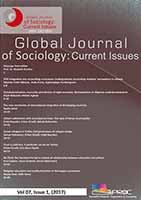Re-Think the Tanzimat Period and Its Inheritance in Context of Relationship between Education and Culture
Re-Think the Tanzimat Period and Its Inheritance in Context of Relationship between Education and Culture
Author(s): Erol Ciydem, Yavuz Ozdemir, Nevin Hilal ErturkSubject(s): Education, The Ottoman Empire
Published by: Birlesik Dunya Yenilik Arastirma ve Yayincilik Merkezi
Keywords: Ottoman Empire; education; culture;
Summary/Abstract: Education and culture are two areas closely related to each other. Especially the changes and transformation in the field of education brought by the modern period radically changed the cultural characteristics of the societies. The Tanzimat Period means the reform period starting from 1839 with the proclamation of Gulhane Hatt-ı Humayunu (Tanzimat Edict) to the year of 1876 in which the Ottoman Empire was proclaimed a constitutional monarchy. The reforms in the Tanzimat Period turned into a social modernization project. The Tanzimat Period means disengagement in the cultural area just like in many other areas from the previous period in the Ottoman Empire. In this study were analyzed the educational reforms in the Tanzimat Period where the first comprehensive initiatives toward modernization were launched in the Ottoman Empire, and the impacts of these reforms on the individuals and the social culture. It was discussed what kind of legacy this period leaved to the Turkish Republic in the context of the relationship between education and culture. In addition, it was aimed to re-evaluate the education-culture relationship in this period by breaking away from the existing stereotypes. Historical research was used as a method in this study.
Journal: Global Journal of Sociology: Current Issues
- Issue Year: 7/2017
- Issue No: 1
- Page Range: 54-62
- Page Count: 9
- Language: English

